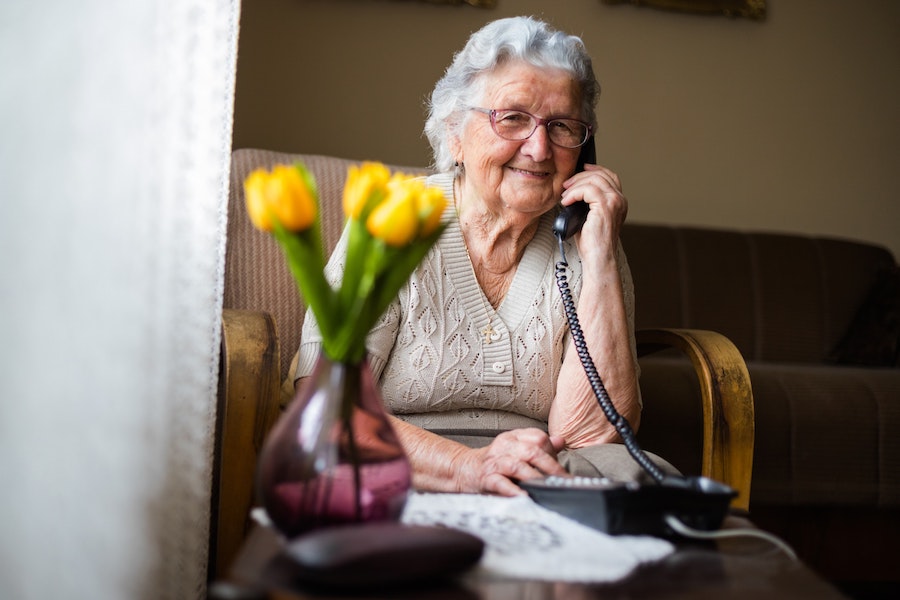10 ways to support vulnerable people right now
If you want to do something to help, here are some ideas.
Supporting and protecting society’s most vulnerable people has become more important than ever amid the coronavirus crisis.
While the outbreak has brought new risks and put pressures on our communities, it has also highlighted what is best about our society.
Thousands of people across the UK are doing their bit to support charities and those in need.
If you would like to play your part, here are a few ways you can join the good work.
1. Befriending
Self-isolation and lockdown rules can lead to many feeling lonely.
Thankfully, some organisations provide help by offering a friendly voice while face-to-face contact is restricted.
AgeUK is an example of a charity providing supportive phone calls to the elderly, while London housing association Peabody has sought volunteers to help support its residents remotely.
Volunteering opportunities of all kinds can be found through these websites: volunteeringmatters.org.uk, navca.org.uk, or doit.life.
2. Supporting food banks
The Salvation Army are urgently appealing for donations to keep their support and food bank networks open during this lockdown.
Please donate but if you’re unable to do so then please RT this post as much as possible to raise awareness.https://t.co/MYp1znht0G#coronavirus pic.twitter.com/xZRAk0ggZ8
— SimonRegency (@SimonRegency) April 2, 2020
Sadly it has been estimated that three million people in Great Britain may have gone hungry during the first three weeks of lockdown.
Food banks play an important role in ensuring everyone gets the nourishment they need.
While it is encouraged people visit shops as little as possible, if you do need to buy some essentials you can also leave some extra products for food banks.
The Trussell Trust website has information on its network of donation points at supermarkets across the country: www.trusselltrust.org.
3. Being a good neighbour
How kind is this? My gorgeous neighbour leaving me daffodils one day and tulips 2day with my shopping in my porch to brighten our days in isolation ❤️❤️. Day 6 of 14. Some slight signs of improvement with the patient. So many different symptoms tho with every day being different pic.twitter.com/5IFQrRyD3W
— Jo Fort (@JoFort1973) March 24, 2020
There is a lot all of us can do to help out our neighbours during this difficult time.This could include offering to run errands, get shopping, pick up prescriptions or simply phone up for a chat.
While the elderly and those at high risk may need the most support, also spare a thought for hard working medical staff, supermarket workers and delivery drivers.
When offering to help people, do make sure you observe the social distancing rules, do not enter people’s homes and do not offer to help if you are experiencing coronavirus symptoms or self-isolating.
The Covid-19 Mutual Aid UK website has details of local groups currently mobilising to support people in local areas: covidmutualaid.org.
4. Donating to charities
As fundraising levels drop, one of the most effective ways to help people is to donate to charity.
Charities supporting healthcare, elderly or homeless people or mental health are among those at the frontline of the response to the coronavirus outbreak.
But there may be a particular cause or local charity that really needs your help amid the fundraising pressures.
At a national level you could consider giving to the coronavirus appeal launched by the National Emergencies Trust, which aims to support those most affected by the outbreak.
5. Adopting a grandparent
Care services provider CHD Living is looking for people to “adopt a grandparent” from its homes who may not have grandchildren of their own.
Volunteers are able to provide a bit of encouraging comfort to their new grandma or granddad through phone or video calls, writing letters, sending pictures or sharing stories.
Applications can be made via: chdliving.co.uk/adopt-grandparent.
6. Giving blood
Maintaining blood stock levels remains as important as ever for our health service. The good news is people can keep giving, with there being no evidence that coronavirus is transmitted through blood donation.
Extra safety measures have been put in place to protect donors and staff, with travelling to donate permitted under lockdown rules.
People must wait 14 days from recovery from any coronavirus symptoms before attending a session. All the guidance on whether you can donate can be found at: blood.co.uk.
View this post on Instagram
7. Using social media well
It may feel minor, but using social media wisely and well can help boost a charity’s cause.
Retweeting, liking, advocating or sharing key information for an important cause can raise awareness.
For example, sharing the numbers of support helplines such as Samaritans (116 123) or Silver Line (0800 4 70 80 90) can help people reach those services.
Similarly, you can help others dodge the growth in coronavirus-related scams by sharing official advice from the Government or police.
8. Helping young people

For those in the younger generation struggling during the coronavirus crisis, The Mix charity is on hand to help.
It provides advice and support to those aged under 25 on issues ranging from housing, to mental health or to drugs.
Remote volunteer opportunities include signing up to be an online counsellor (this requires prior formal training) or becoming a “digital connector” to support the charity’s digital channels.
9. Buying locally
Many small businesses will be hit hard by the ongoing coronavirus lockdown.
To help keep them afloat you can continue to keep ordering food and supplies from those moving their services online.
A useful resource for Londoners to explore is the website myvirtualneighbourhood.com, which lists companies offering deliveries.
10. Staying inside
Although it may feel frustrating to be stuck at home, just by staying inside you are already doing the most important thing you can.
To help save lives and stop the spread of coronavirus, we must all make sure we stick to the strict lockdown rules, observe social-distancing and keep washing our hands regularly.
The Press Association
Latest posts by The Press Association (see all)
- The Osmonds star and ‘beloved husband and father’ Wayne Osmond dies aged 73 - January 2, 2025
- What screenings are available on the NHS to detect cancer early? - January 2, 2025
- Help your grandchildren make the most of Big Schools’ Birdwatch - January 1, 2025
- Veteran radio star Johnnie Walker dies aged 79 - December 31, 2024
- 5 fantastic winter walks for wildlife spotting - December 31, 2024




















